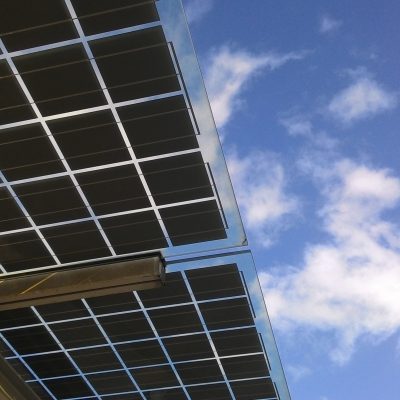by David Lapp Jost
To paraphrase the old proverb about fishing, “put solar on the roof of your house, and you make part of your energy consumption clean for part of your life. Advocate and get solar put up on the roof of a typical church, medium-scale business, non-profit, school, university, or public building, and you make more clean energy than you or your family will ever consume in the rest of your life.”
The best that most of us can do for the environment is to foster sustainable development at our local or perhaps regional level. Naturally, a sustainable world depends on active and thoughtful citizens who live responsibly in their own consumption and practices, and living simply and sustainably frees up resources that we can devote to others. We should also be aware of national politics and take a small role in shaping those conversations. But the most accessible path we have toward a cleaner world is through nurturing neighborly organizations and institutions around us, every day.
The need for a focus on local and regional institutions is evident when it comes to electricity. We could do a lot if we funneled energy and funds that go into small solar projects or electric cars into significant solar or wind. The costs of renewable energy plummet as projects scale up, because installers can order in bulk, rely on having work at the same place for a longer time and budget more evenly. It is easier and takes less preparation to plant a lot of panels on large roofs, parking lots or fields than the same amount of solar power requires if spread out.
Do you have an influential voice at a church, school, farm, non-profit, business, or other institution that could consider going solar? Or do you know others who do? In practically every community in the U.S., there is space for more solar. Schools, countless barns and other agricultural buildings, many industrial and retail facilities and apartment buildings could have solar on their roofs or parking lots. In the Mennonite world, a solid number of churches, non-profits, thrift stores, and some farms have gone solar, but many more could. This decision can also help address environmental injustices such as polluted air which fall along racialized lines domestically and globally.
There are a couple financial tools in the Mennonite world that can help finance medium-scale solar projects. One option for non-profits could be to get a loan at a low interest rate to be repaid over time to fund a solar installation. A non-profit can net significant savings while investors get a small return, and of course the local environment and human health benefit. A group rooted in Mennonite circles called the Sustainability Alumni Network Investing Collective provides loans like this. If you know of an organization interested in going solar and are considering your options, MCCN can help you connect. Email mccn@goshen.edu
